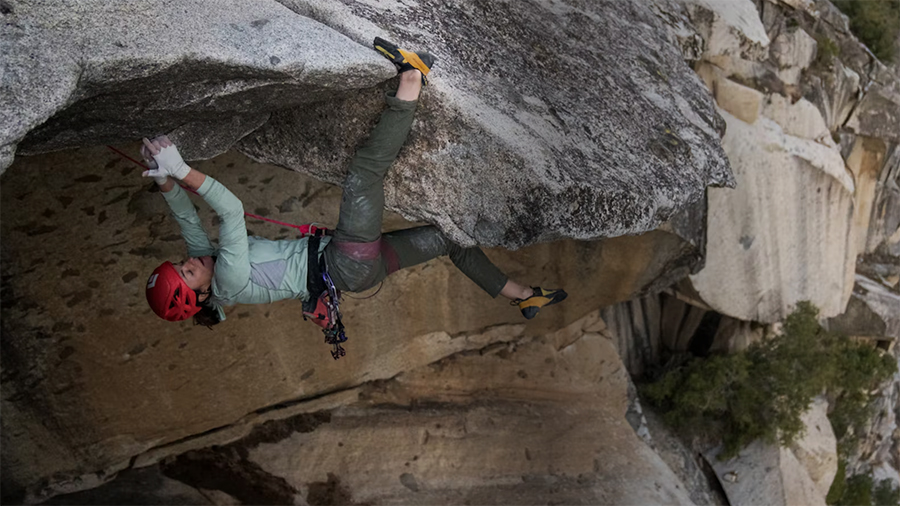On an analyst call, John Walbrecht, president at Clarus Corp., said inventory destocking at Black Diamond’s larger retail accounts in North America continued in the fourth quarter, wiping out open-to-buy opportunities and driving a sharp revenue decline. The pain is expected to continue in the first quarter but Walbrecht said demand for Black Diamond remains healthy.
“Based on our continued conversations with our larger key accounts, this is not a Black Diamond-specific issue, as our products continue to show strong sell-through,” said Walbrecht. That has limited overall open-to-buys and “made it difficult to chase those categories that were continuing to see growth,” including tracking poles, headlamps, gloves, packs, and apparel for Black Diamond. He admitted that apparel appeared saturated overall in casual offerings.
“We believe the issue stems from other discretionary categories not geared towards the activity-based consumer,” said Walbrecht. “Unlike other retailers we work with globally, there continues to be a challenge for large North American key accounts to ensure a balanced portfolio of inventory. The demand-pull forward experienced in 2020 and 2021 due to the pandemic led to an extreme over-indexing of inventory. With the overall demand curve slowing, open-to-buys are delayed until this excess inventory is sold through at the retail level.”
On the bright side, Walbrecht said Black Diamond’s larger North American partners have worked down their inventories in the last six months and he expects sales will start recovering in the second quarter with “stronger” growth in the second half of the year.
Clarus’ overall sales fell 11.8 percent in the fourth quarter, to $104.2 million, above guidance and Wall Street’s consensus estimate of $101 million.
Fourth-quarter sales at the Outdoor segment, which consists of Black Diamon, were $55.3 million, down 15.1 percent year over year from $65.1 million in the fourth quarter of 2021. On a constant-currency basis, Outdoor sales would have been down 11 percent.
The declines in North American retail accounts offset growth in the direct-to-consumer channels and European and IGD (International Global Distributor) markets.
Sales in the Precision Sports segment (Sierra and Barnes) grew 10 percent to $30.3 million, reflecting continued strong demand and market share gains.
Sales in the Adventure segment were $18.5 million, down 27.4 percent year-over-year due to lower consumer demand given the challenging economic environment and constraints on new vehicle deliveries which impacted new product sales in both Australia and North America.
Adjusted EBITDA in the fourth quarter fell 47 percent to $10.6 million, below Wall Street’s consensus target of $11.6 million. The decline was driven by lower sales in the Adventure segment, as well as unfavorable movements in foreign currency exchange rates and higher freight costs.
Gross margins in the quarter eroded 150 basis points to 34.6 percent due to higher freight costs and unfavorable foreign currency exchange movement. Higher freight costs negatively impacted gross margin by 90 basis points and foreign currency exchange had a 220-basis points impact.
SG&A expenses were down slightly to $33.1 million compared to $32.6 million in the same year‐ago quarter. The inclusion of Maxtrax acquired on December 1, 2021, and higher rent and selling expenses at the Adventure segment were nearly offset by lower non-cash stock-based compensation for performance awards at the corporate level.
Clarus net loss in the quarter came to $81.6 million, or $2.20 a share, compared to net income of $14.0 million, or 36 cents, in the prior-year quarter. The latest year included a non-cash impairment charge of $92.3 million in the Adventure segment due to the decline in the company’s stock price and lower sales and profitability in the Adventure segment compared to expectations.
For the year, sales climbed 19 percent to $448.1 million, including revenue contribution of $77.0 million from Rhino-Rack, acquired on July 1, 2021, and $15.9 million from MAXTRAX. Full-year 2022 sales increased 1 percent on a proforma basis. By segment, Outdoor sales in the year were up 1 percent to $222.3 million, Precision Sport sales jumped 21 percent to $132.9 million, and Adventure sales were $92.9 million.
Adjusted EBITDA in 2022 was $63.0 million, up 2.1 percent from $61.5 million a year ago. The net loss was $69.8 million, or $1.88, after the fourth-quarter impairment charge against $26.1 million, or 73 cents, a year ago.
On the call, Walbrecht described 2022 as “one of the most challenging years in our company’s history,” marked by an “uncertain macroeconomic environment, a tough consumer backdrop, extremely volatile foreign currency exchange markets and inefficient supply chains.”
He said that as the challenges built, Clarus quickly pivoted to focus on “areas of our business that weren’t facing the most severe headwinds,” including Precision Sports as well as markets outside of North American wholesale in its Outdoor segment.
“We also prioritized expense reductions, free cash flow generation and debt reduction,” said Walbrecht. “On the cash side of this equation, we focused on streamlining inventory and cost reductions. This allowed us to generate over $30 million in free cash flow during the fourth quarter, which we used to pay down $28 million in debt. We ended the quarter at approximately 2 times leverage, which is at the low end of our leverage range and we believe it is a comfortable spot as we enter into 2023.”
Looking to 2023, Clarus expects the fiscal year 2023 sales of approximately $420 million, representing a year-over-year declined of 6.3 percent, and adjusted EBITDA of approximately $60 million, slightly down from $63.0 million in 2022. Clarus didn’t provide expectations for growth by segments due to the uncertain environment.
Photo courtesy Black Diamond
















